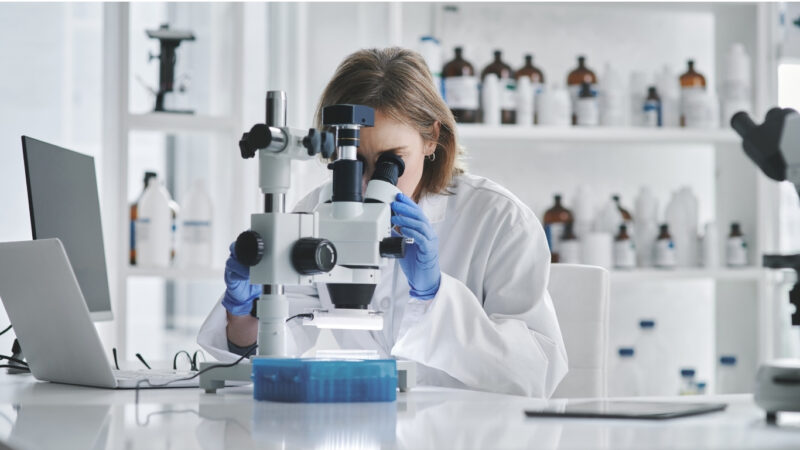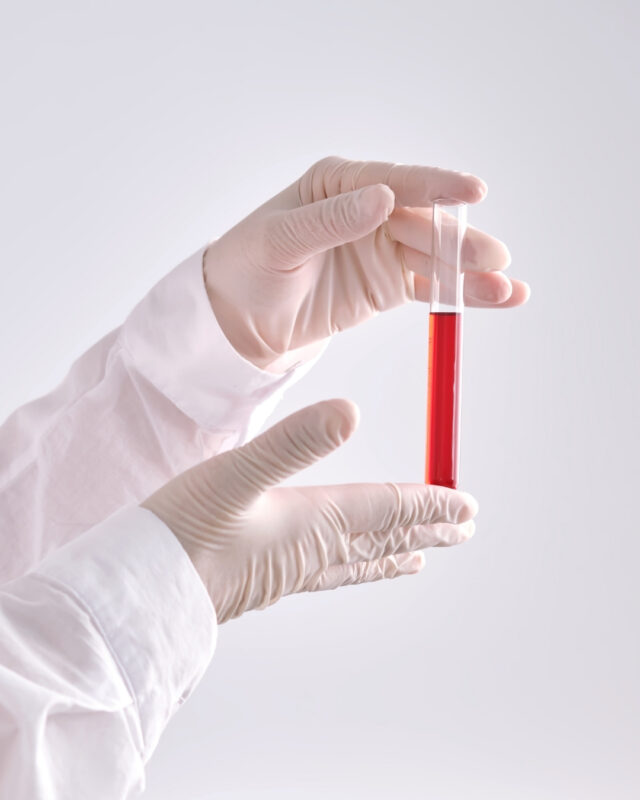One of the dynamics that form the basis of a healthy life is the nutritional supplements and vitamins taken. Regularly using such supplements, which ensure the balance of hormones, vitamins and minerals in our body – under the supervision of a doctor, of course – allows us to protect our health. Are all of these supplements necessary? Yes! Okay but why? Let’s examine it together.
The Miracle of Genetic Science
We can say that the most significant leap in human health in a positive sense has occurred through the field of genetic science. In the past, it was not possible to treat many diseases, today it is possible to obtain the most specific information about a person’s cells and organs through tests performed thanks to genetic science. In fact, in the light of all this information, the concept of “Aging is a disease” was born. With this concept, various preventative medicine treatments were developed. We are currently experiencing a new leap in this era: With the technology advancing alongside artificial intelligence (AI), it has become possible to determine what a person needs and, most importantly, to start producing the necessary molecules. Previously, we used to visit the doctor only when we encountered a problem in our body. However, thanks to preventative medicine, screenings for all genetic, cellular, and blood values are now conducted even when we are in good health. This way, whether our body has the potential against problems such as diabetes and methylation problems; is determined beforehand. Within the scope of preventive medicine; Thanks to methods such as lifestyle changes, regular health checks, supplements, vaccines, and health education, these diseases that we may be genetically predisposed to are prevented before they are activated.
As we all know, various laboratory tests can measure a person’s vitamin and mineral levels. Therefore, based on the results of these tests, supplements are prescribed according to the deficiencies, and appropriate treatments can be provided if the levels are high. Unlike in the past, supplements are not prescribed with a one-size-fits-all approach! For instance, if you feel fatigued, instead of directly taking vitamin D, your blood values are examined through laboratory tests, and the results are evaluated by an expert. Based on the mathematical outcome of your analysis, if your doctor deems it necessary, a vitamin D supplement is prescribed. Therefore, the direct and most significant contribution of genetic science to our health lies in personalized supplementation based on individual blood values, rather than using general prescriptions.
A quick reminder: Even the harmful effects of smoking – even leading to cancer – were identified as a result of the miraculous studies of genetic science in the 1960s!

A new era!
While the average lifespan of people was only in their 40s in the 1800s, this rate increased to 70s in the 1900s. We can say that human lifespan was extended by another decade in the 20th century. Nowadays, in the 21st century, we see that one of the most important goals of humankind is to increase this rate even more. Moreover, we are not just talking about a numerical increase; We are talking about “youth in their 80s”. We are talking about people who are perfectly healthy and self-sufficient at the age of 80-90 or even 100, without needing their children, relatives or any kind of assisted living.
Unfortunately, most of the people aged 70-80 around us are retired, have no life energy, and are just “filling out the day” in this world. However, now a new era begins; this time we are talking about individuals who can stay healthy even at the age of 100! Not a lot; in just these few years, there will be such healthy, lively, active, high-energy people around us that we will not even be able to call them “old” anymore -our goal is to be one of them.
Milestones of Medical History
Did you know that until the early 20th century, diabetes was considered fatal? The reason was the absence of insulin therapy. Insulin, a hormone produced in the pancreas, helps regulate blood sugar in the body. Diabetes occurs when the body cannot produce enough insulin or when the insulin produced cannot be effectively used.
The discovery of insulin in 1921, as a result of the work of Frederick Banting, Charles Best, James Collip and John Macleod, revolutionized the treatment of diabetes -Prof. Dr. A major development took place that brought John Macleod and Frederick Banting the Nobel Prize in 1923. This discovery made it possible to supplement insulin to diabetic patients, greatly reducing the risk of diabetes becoming fatal. In short, the discovery of insulin significantly improved the quality of life of diabetic patients and reduced the risk of the disease becoming fatal.
Likewise, with the discovery of penicillin and its use as medicine, the average human lifespan, which was only 40 years old until then, almost doubled. Penicillin was discovered by British microbiologist Sir Alexander Fleming in 1928. Fleming; In his experiments on staphylococcus bacteria, he realized that the “penicillin mold”, which is actually a mold fungus, prevented the growth of the bacteria with a substance it secreted. And this substance was called penicillin, which we all know. Penicillin was the first discovered drug with antibiotic properties and was a major breakthrough in the treatment of bacterial infections. So much so that, thanks to this amazing discovery, Sir Alexander Fleming won the Nobel Prize in Medicine in 1945.
Well, wasn’t it thanks to these valuable discoveries that the life expectancy of human beings gradually increased with each passing century? So why wouldn’t it be possible to extend human life even further with new miracles from the endless universe of science waiting to be discovered? In this new era, human beings are now making very positive progress in the field of cell health.

Featured Supplements
For example, all clinical studies suggest that taking nitric oxide as a supplement enhances the quality of life. Nitric oxide is a molecule that plays a significant role in cardiovascular health and is naturally produced in the body. It supports healthy blood circulation and blood pressure, provides healthy blood flow to the brain and other organs, enhances cognitive function and memory, and acts as a rich source of antioxidants. Athletes also take nitric oxide supplements to enhance their performance.
The miracle of cellular nutrition! Proper supplementation with cellular nutrition contributes to the healthy life and longevity of cells.
Additionally, nutritional supplements such as Urolithin A, a post-biotic (obtained by pomegranate extract), a potent antioxidant source, significantly reduce age-related muscle loss. Urolithin A boost mitochondrial health by triggering mitophagy.
Probiotic supplements regulate the functioning of the intestines, also known as our second brain. Particularly, the Akkermansia muciniphila bacterial species found in the intestines is crucial for gut health. It contributes to various health benefits such as regulating obesity, type 2 diabetes, and the immune system. When taken as a dietary supplement, this microorganism significantly supports intestinal health through nutritional supplements such as prebiotics and probiotics.
Diving Pleasure at the Age of 90!
From time to time, you have probably come across news headlines such as “Still going strong at 108!” or “Thriving at the age of 112.” However, in this new era, thanks to nutritional supplements use – of course, with the advice of experts – we will start witnessing not just the age but the quality of life. Instead of “elderly people” who have no choice but to live in assisted living facilities or with close family members because they cannot take care of themselves, and who spend the rest of their lives struggling with diseases, we will be surrounded by healthy aged people.
With numerous studies in the field of longevity, the perception that “being old means being sick” is changing, and we are heading towards healthy days. Just like the discovery of medications such as penicillin and insulin transformed once fatal diseases into manageable ones.
Who knows, perhaps news about aging will evolve into headlines like “Thriving at 108 and enjoying fantastic skiing!” or “There was great interest in diving tours for people over 90 years old organized in Sharm El Sheikh!”





